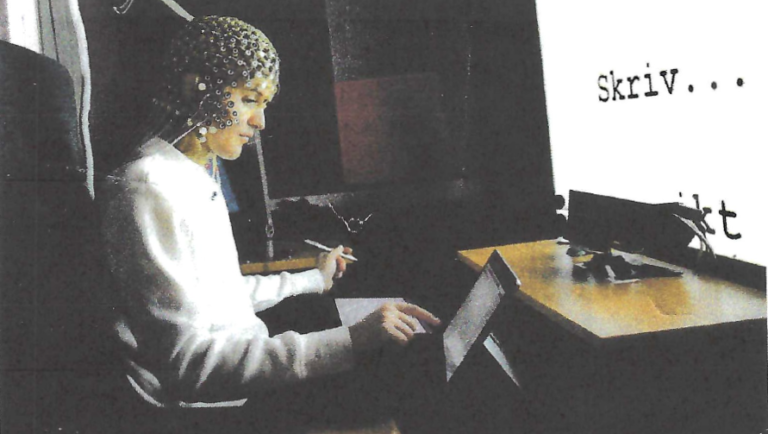Writing by Hand Could Be Better for Learning and Retaining Information Than Typing
BY CLAUDIA LÓPEZ LLOREDA
For some, repeatedly writing the same word in cursive might recall unpleasant memories, but a recent study indicates that handwriting can enhance the connectivity between brain regions involved in learning and memory.
Researchers discovered that when college students wrote words by hand, their brain connectivity—especially in areas linked to memory—was stronger compared to when they typed. This finding was published on January 26 in Frontiers in Psychology.
Neuroscientist Ramesh Balasubramaniam, from the University of California, Merced, who didn’t participate in the study, notes that this implies a significant difference in how the brain organizes for handwriting versus typing.
This research adds to existing evidence supporting the benefits of handwriting. Previous studies indicated that handwriting enhances spelling, memory recall, and understanding of concepts. It is believed that the slower pace of writing allows for better processing of material, and the complexity of the movements involved aids learning.
In this study, psychologists Audrey van der Meer and Ruud Vander Weel from the Norwegian University of Science and Technology in Trondheim engaged 36 students who wore caps equipped with electrodes. The students were instructed to either type or write in cursive using a digital pen to recreate words displayed on a computer screen.
The electrodes monitored the electrical activity in the participants’ brains during these tasks.
The researchers analyzed the data for coherence, which is when two brain areas exhibit activity at the same frequency simultaneously. This coherence can indicate the strength of the connection between these brain regions.
The results showed coherence only during handwriting. Compared to typing, handwriting resulted in increased activity in lower-frequency alpha and theta waves in brain areas tied to learning. It also enhanced connectivity in central brain regions associated with memory and areas involved in sensory and motor functions.
These results indicate that different brain activation processes occur during typing versus writing. Despite the similarities in movement, “the activation seems much, much higher in handwriting,” states Balasubramaniam. “More brain regions are involved when handwriting.”
Van der Meer and Vander Weel believe this increase may support learning, as the identified brain waves are critical for memory formation. However, since the study didn’t assess whether participants remembered the words, the impact of this heightened activity on learning remains unclear. Psychologist Kathleen Arnold from Radford University emphasizes that further research is needed to investigate the reasons behind these connectivity differences and their relation to learning outcomes.
Balasubramaniam suggests that the distinct physical movements involved in typing and writing may account for these variations. However, these findings represent the initial steps in understanding their differing brain activation patterns.
While handwriting may enhance learning processes, typing offers greater speed and practicality. Therefore, students and educators should carefully consider whether to write or type based on the task, according to Vander Meer. For instance, handwritten notes may improve retention, while typing out an essay might be more efficient.
Experts agree that more research is necessary to identify the best learning strategies, but they emphasize that handwriting should not be overlooked in our digital era. Balasubramaniam advocates for integrating more handwriting into educational curriculums.
In California, a new law mandates that students in grades one to six learn cursive writing. This study, along with similar research, could encourage similar legislative efforts elsewhere.
Van der Meer also highlights that writing is part of our cultural heritage. The ability to compose a grocery list or a love letter, she points out, “is significant for us as humans.”


